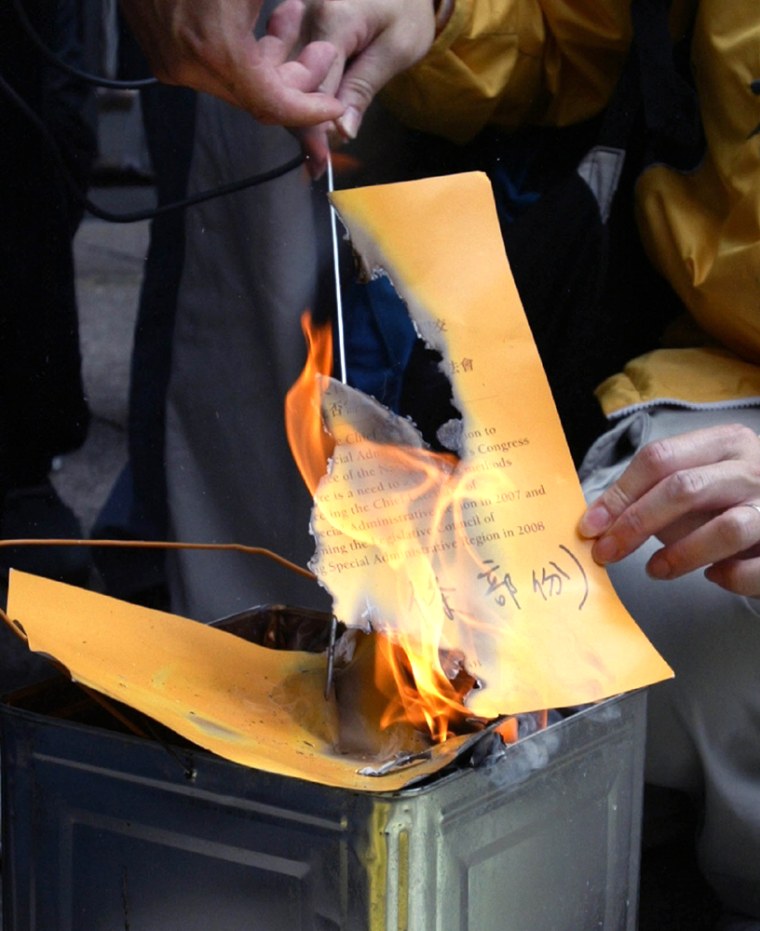China’s most powerful legislative committee ruled Monday that Hong Kong will not have direct elections for its next leader in 2007, an official said, crushing hopes in the Chinese territory for a quick move toward full democracy.
The territory will be allowed to make changes to its electoral methods but they must come gradually, said Tsang Hin-chi, a Hong Kong delegate to the Chinese National People’s Congress Standing Committee.
The decision ruled out what many Hong Kong people have been demanding — the right to democratically elect a successor to the unpopular Chief Executive Tung Chee-hwa in 2007 and all lawmakers in 2008. Tung is seen as one of the biggest impediments to Hong Kong achieving democracy.
In remarks carried on Hong Kong television, Tsang said the Standing Committee voted almost unanimously to approve its latest stance on Hong Kong democracy, with 156 votes backing the ruling and one abstention.
Tsang said the Chinese lawmakers had acted “according to Hong Kong’s actual situation” and that they had listened to Hong Kong public opinion.
Ordinary Hong Kong residents now have no say in choosing their leader and they pick only some lawmakers, although Hong Kong’s mini-constitution, the Basic Law, holds out the possibility of direct elections of the leader in 2007 and all lawmakers in 2008. The Basic Law sets out full democracy as an eventual goal but sets no timetable.
Tsang said Hong Kong’s electoral methods could be changed in time for the 2007 and 2008 elections. He did not elaborate on what changes were possible although he said direct elections would not happen.
The Standing Committee shocked Hong Kong earlier this month by issuing a binding ruling that any electoral reforms must be approved in advance by Beijing. Hong Kong’s unpopular leader Tung then proposed a set of nine guidelines that any reforms should meet, including keeping China’s views in mind.
While Hong Kong residents will directly elect 30 of 60 lawmakers in the September elections — up from 24 last time — the other 30 will be chosen by elite voters from special interest groups, such as business leaders, doctors and bankers.
